Films with theme "Films about Jews and Judaism", sorted by revenue
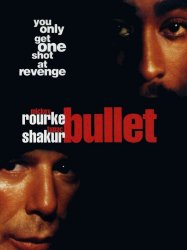
Bullet (1996)
, 1h35Directed by Julien Temple
Origin USA
Genres Drama, Thriller, Action, Crime
Themes Films about religion, Films about Jews and Judaism
Actors Mickey Rourke, Donnie Wahlberg, Adrien Brody, Scott Glenn, John Enos III, Ted Levine
Butch "Bullet" Stein (Mickey Rourke) is a 35-year-old Jewish ex-con who is released from prison after serving an 8-year sentence for being an accomplice to a robbery. After his release he returns to Brooklyn to live with his dysfunctional family, including his alcoholic father, depressed mother, unstable older brother Louis, and his younger brother Ruby, an aspiring artist.

They Came for Good (1997)
Themes Films about immigration, Films about religion, Documentary films about historical events, Documentary films about religion, Films about Jews and Judaism
 , 58minutes
, 58minutesDirected by Benny Brunner
Genres Documentary
Themes Films set in Africa, Films about religion, Documentary films about law, Documentary films about war, Documentary films about historical events, Documentaire sur une personnalité, Documentary films about politics, Documentary films about religion, Political films, Films about Jews and Judaism

Buzz (1998)
, 1h27Directed by Eli Cohen
Origin Israel
Genres Drama
Themes Films about religion, Films about Jews and Judaism
The film is based on a real event in 1994, in which two 14-year-olds—Arbel Aloni and Moshe "Moshiko" Ben-Ivgi—murdered a taxi driver (named Derek Roth). In the film, their names have been changed to Ido Ben Ze'ev and Rafi, respectively. Ido comes from a wealthy family and acts as leader, while Rafi lives with his single mother and follows Ido.

Divine Food (1998)
, 47minutesOrigin USA
Genres Documentary
Themes Films about religion, Documentary films about religion, Films about Jews and Judaism

Echoes from a Ghost Minyan (1998)
, 47minutesGenres Documentary
Themes Films about religion, Documentary films about religion, Documentary films about cities, Films about Jews and Judaism
On February 22, 1882, the S.S. Illinois docked at the foot of Federal Street on the Delaware River in South Philadelphia. Among the passengers on board were 225 European Jewish refugees, most of whom settled nearby. By the close of World War I, a little over 40 years later, South Philadelphia was home to over 100,000 Jewish immigrants, making it the second largest Jewish neighborhood in the United States. However, the thriving community didn't last long. Soon after World War II, the Jews began moving to other parts of the city and surrounding suburbs. By the beginning of the 21st century, the Jewish community of South Philadelphia had almost completely vanished.

Photographer (1998)
, 52minutesDirected by Dariusz Jabłoński
Genres War, Documentary, Historical
Themes Films about racism, Films about religion, Documentary films about racism, Documentary films about law, Documentary films about war, Documentary films about historical events, Documentaire sur une personnalité, Documentary films about religion, Political films, Films about Jews and Judaism, Documentary films about World War II
Actors Artur Brauner
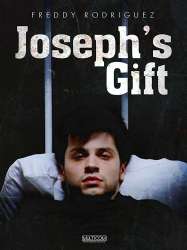
Joseph's Gift (1998)
Directed by Philippe Mora
Origin USA
Genres Drama
Themes Films about religion, Films based on the Bible, Films about Jews and Judaism
Actors Freddy Rodríguez, Brion James, Robert Townsend, John Saxon, Pamela Bellwood, Martin Kove
The Keller family are the owners of a successful garment business based in Los Angeles, California. The story mainly revolves around Jacob Keller's (John Saxon) youngest son Joseph (Freddy Rodriguez). Because Jacob treats Joseph as if he is his favorite son, Joseph's brothers Ashton, Simon, and Robert plot to eliminate Joseph. They accomplish this by going on a business trip with Joseph, only to have him kidnapped and taken to a sweat shop run by sadist Frank Childress (Brion James).
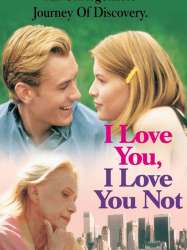
I Love You, I Love You Not (1996)
, 1h28Origin USA
Genres Drama, Romance
Themes Films about religion, Théâtre, Films about Jews and Judaism, Films based on plays
Actors Jeanne Moreau, Claire Danes, Jude Law, James Van Der Beek, Julia Stiles, Robert Sean Leonard
The film is told through the stories of two women: Nana, a grandmother, and Daisy, her granddaughter. Daisy tells Nana of her strong and blossoming romance with a young man named Ethan and her problems at school because she's Jewish. Nana tells the story of her young life when she was sent to a ghetto and then a concentration camp. The romantic love feelings she has for the boy are indeed strong and genuine, but the romantic love he has for her is questionable. He lets his friends judge her from the outside, not for who she is on the inside, and when she turns out to not be like every other girl he breaks up with her. Daisy is sad so she goes and sees Nana and takes her anger out on her. She then runs away and tries to kill herself but she does not. At the end, she tries to see him again but he looks at her for a long time and walks away with his friends. She stands there; heartbroken, sad and crying, realizing that maybe it was not meant to be and she walks away happy .
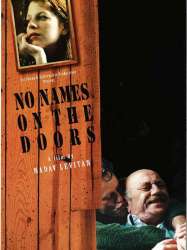
No Names on the Doors (1997)
, 1h24Directed by Nadav Levitan
Origin Israel
Genres Drama
Themes Films about religion, Films about Jews and Judaism
Actors Chava Alberstein, Mosko Alkalai, Assi Dayan (אסי דיין), Dan Wolman
The film is set on a modern kibbutz as the spectre of an Arab invasion lurks in the background and financial pressures are breaking down traditional communal values. A series of fragile, interwoven stories mirror this disintegration of collective ideals: a longstanding friendship between two 40-year-old bachelors (Danni Bassan and Meir Swissa) ends tragically when one decides to get married; a bereaved father is embarrassed to find himself attracted to his dead son's girlfriend (Dorit Lev-Ari); and a mother (Chava Alberstein) perpetuates the memory of her dead son by tending to his room as a memorial. At the same time, an elderly man (Mosko Alkalai) discovers a new, more loving relationship with his intellectually-disabled adult son (Avi Pnini).
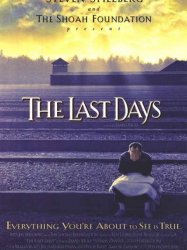
The Last Days (1998)
, 1h27Directed by James Moll
Genres Drama, War, Documentary, Historical
Themes Films about racism, Films about religion, Documentary films about racism, Documentary films about law, Documentary films about war, Documentary films about historical events, Documentaire sur une personnalité, Documentary films about religion, Political films, Films about Jews and Judaism, Documentary films about World War II
Le documentaire relate l'histoire de cinq juifs hongrois durant l'holocauste, en s'intéressant notamment à la vie dans les camps de concentration et au désir de vivre des prisonniers.
 , 40minutes
, 40minutesDirected by Keiko Ibi
Origin USA
Genres Documentary
Themes Films about religion, Théâtre, Documentaire sur une personnalité, Documentary films about religion, Documentary films about cities, Films about Jews and Judaism
Le film est consacré à une troupe de théâtre juive de seniors de New York. Le groupe de personnes âgées partagent des détails intimes de leurs vies.

Pola's March (2001)
, 1h10Origin USA
Genres Documentary
Themes Films about racism, Films about religion, Documentary films about racism, Documentary films about law, Documentary films about war, Documentary films about historical events, Documentaire sur une personnalité, Documentary films about religion, Political films, Films about Jews and Judaism, Documentary films about World War II
 , 54minutes
, 54minutesOrigin USA
Themes Films about religion, Documentary films about historical events, Documentary films about religion, Documentary films about cities, Films about Jews and Judaism

The Sixth Battalion (1998)
, 56minutesGenres Biography
Themes Films about racism, Films about religion, Documentary films about racism, Documentary films about law, Documentary films about war, Documentary films about historical events, Documentaire sur une personnalité, Documentary films about religion, Political films, Films about Jews and Judaism, Documentary films about World War II
 Connection
Connection